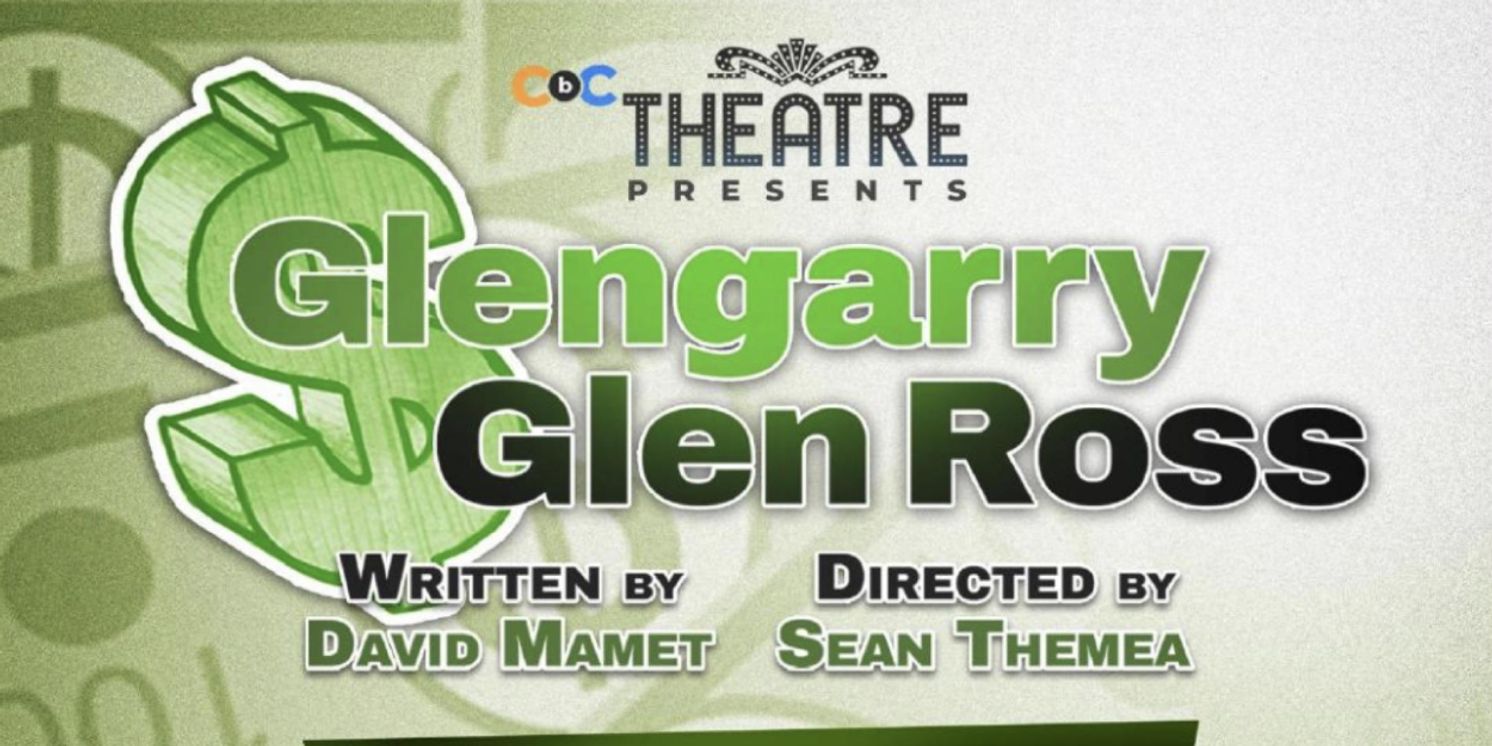Review: GLENGARRY GLEN ROSS at Trinity Street Playhouse
by Communication by Captivation immediately and effectively draws the audience into the bleak world of real estate in the early 1980s.

The early 1980s were a disaster for real estate: there was an almost 50% drop in sales from 1978-1982, property prices increased substantially, and the mortgage interest rate climbed to 18%. It is in this context that David Mamet wrote his Pulitzer Prize-winning play GLENGARRY GLEN ROSS, which exposes two days in a real estate office based on his own experiences in a similar one.
GLENGARRY is a dark, gritty play. On its surface, it is an exposition of aggressive masculinity, problematic morality, and the merciless competitiveness of capitalism with its race-to-the-top ethos, all couched in unbridled profanity including racist, homophobic, and sexual language and tropes. Beneath this, there are four men who are mercilessly cast by their employer into a boiling pot of competitive sales, each one willing to resort to any means necessary (including lies, flattery, bribery, threats, intimidation and burglary) to close a sale. Indeed, closing sales is so paramount to the desperate acts of the characters in this play that the most commonly quoted lines from the play reflect this: “ABC - Always Be Closing” and “Coffee is for closers,” among others. There is much analysis and thought written about this play, and I commend that body of research to anyone who wants to gain deeper insight into the culture that informed the writing of this play.
Austin-based theater company Communication by Captivation (CBC) is performing GLENGARRY at Trinity Theater this weekend. Directed by Sean Themea (his directing debut), this performance immediately and effectively draws the audience into the desperation of the story, allowing little respite from the ubiquitous belligerence and anxiety of each character, which is exactly how the play is to be experienced. Indeed, despite the play’s controversial and bellicose nature, which may deter some audience members, this performance is notable: well acted, directed with attention to detail, and delivered skillfully - a solid performance by CBC, a relatively new theater company.
This production begins with a prologue based on the “Always Be Closing” scene from the 1992 GLENGARRY film adaptation, a role that was added specifically for the movie and played by Alec Baldwin. By adding this piece, Themea helps the audience understand the stakes these characters are under from the beginning. There is intense pressure from the business owners with only three results: win a car, get a set of steak knives, or be fired. After this, the story moves to a Chinese restaurant and the formal play begins with Shelly Levene (Jonathan Spear) trying to convince John Williamson (Phillip Smith), the office manager, to give him better leads to sell properties to. The rest of the first act introduces us to each character through duet scenes, bringing us to the explosive second act, where the extent of these characters' deception and unethical actions begin to surface.
The cast of GLENGARRY is distinctly accomplished, with many stand-out performances. Jonathan Spear is remarkable, convincingly portraying the complex character of Shelley Levene; every nuance of Levene’s shifting emotional states, from despondency to triumph to defeat and regret, is utterly believable and professionally delivered. I will be looking for other performances with Spear featured based on this experience of his acting skill. Well done, sir.
Ralph Tedesco delivers the larger-than-life, loud, abrasive, contemptible role of Dave Moss effectively, especially in the second act where his rage is palpable, both through the vocal performance and the physical sweeping of objects in anger. Joshua Nuñez’ range as an actor is notable for the role of Ricky Roma, a sales agent with questionable selling ethics but strong friendship and company loyalty values. Julius Alum (Blake) delivers an astonishing prologue with his distinct vocal timbre and acting excellence, even carrying his character’s manner to the intermission as the hype man for the (theater) company, and John Rodgers (Baylen/Waiter) is exceptional in his supporting roles - especially as the waiter, providing some understated comic relief during particularly tense scenes. The cast is rounded out by Phillip Smith (John Williamson), a beleaguered office manager; Jack Baziuk (George Aaronow), a struggling sales agent; and David Lampe (James Lingk), a customer who is trying to back out of a sale.
Laura Caffrey’s set design and stage management is exceptional. Trinity Theater, a black box theater, offers set construction challenges with columns between the audience and the stage, limited space for constructing a set, and audience on three sides. The flexibility of rotating set pieces and the efficient use of storage for tables on benches (Chinese restaurant) and shelving for office supplies and other detritus, is extremely efficient and works perfectly. Adding a rotating back wall as well adds to the transformation of the space, using every inch of the set in multiple ways. The sound design by John Rodgers is well done without intruding on the action, using sounds of a storm, restaurant babble, and other effects well.
How does one say they enjoy vitriol? And yet, despite the contentious aspects of this play, I very much enjoyed the performance. It is well-directed, well-acted, and offers a credible look into the chaotic, malignant world of early 1980s real estate. I would say that for anyone considering this play for an evening out, pay heed to the significant triggers it carries with it. There is continuous profanity - in word and gesture, significant racist, homophobic and sexist language, aspects of toxic masculinity, violent language, and action, and other provoking elements in this play. CBC has several posters advising audience members of these potential triggers (very glad for this), and encouraging audience members to consider these well before attending. It is not a play for children or youth to attend, adult audiences are most appropriate.
Reader Reviews
Videos
